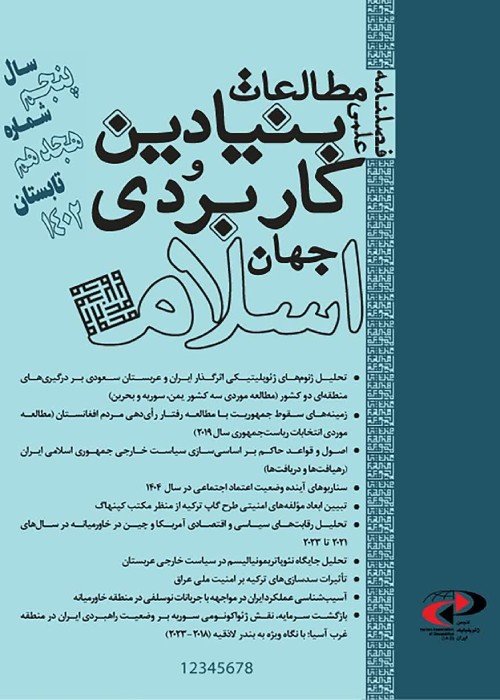Internationalization of higher education and future of convergence of Islamic countries
During the history of Islamic civilization there are different rationales for strengthening convergence and divergence which have shaped the destiny of these countries. Based on futures studies point of view these rationales can be categorized in term of social, technological, economic, environmental, political, and values, otherwise it will be nonsensical to achieve preferable future for Islamic civilization without paying attention to mentioned rationales and contexts. In this paper cultural and intercultural context and rational as a subdivision of values has been studied. Developing scientific collaboration of Islamic countries together and with non-Islamic world has been a great effect on science and technology development in Islamic civilization. In this paper tried to focus on the role of international scientific collaboration prepare good condition for mutual and intercultural understanding between Muslim people. According to international scientific databases and by using environmental scanning collaboration among members of scientific communities of Islamic countries has been studied.
The methods which have been used in this paper including: Macro historian analysis of scientific collaboration in Islamic civilization, trend analysis to study current trends of scientific cooperation among Islamic countries, and scenario planning to determine alternative futures for scientific collaboration of Islamic countries. Analyzing the exchange of students, holding joint research and educational programs, coauthor ships in international scientific journals shows the trend of international collaboration between Islamic countries is not in a way which end to preferable future of Islamic civilization. The main collaboration of Islamic countries scientist and researchers are with western and non-Muslim countries. The most important uncertainties against scientific convergence and cooperation of Islamic countries includes: nature of state and orientation of scientific communities; in other words dependency or independency of Islamic countries states toward or from western countries from one side and orientation of their scientific community toward collaboration with western or Islamic countries determine the alternative futures of convergence among Islamic countries: Dependent or independent government to west world: dependent government looking its preferable future and utopia in west and independent government facilitate the international collaboration for their scientific communities and has no bias for Islamic or non-Islamic countries. Orientation of scientific countries toward Islamic countries or west. According to these mentioned dimensions there are four alternative scenarios: 1.Return to golden age of science and technology in world of Islam: in this scenario revival of past preferable situation which prepare good condition for government and scientific community members is following. 2.Open common: in this scenario we have independent government in Islamic countries and facilitate good situation for expanding collaboration of their scientific communities with their counterparts in islamic countries but there is great tendency for these community members to collaborate with western countries rather than Islamic world. 3.Close common: in this scenario there is a great tendency toward collaboration with Muslim countries among scientific communities’ members but their governments banned these collaboration. 4.Civilization entropy in Islamic world: based on this scenario there is no tendency in government and scientific community to have scientific collaboration with Islamic countries.
scientific convergence among Islamic countries and sharing their scientific, technological and innovative achievements are driver forces for shaping the preferable future in Islamic civilization. Policy making in Islamic countries for expanding mutual scientific collaboration requires consideration of complex interrelation among different stakeholders in national and international sphere.
- حق عضویت دریافتی صرف حمایت از نشریات عضو و نگهداری، تکمیل و توسعه مگیران میشود.
- پرداخت حق اشتراک و دانلود مقالات اجازه بازنشر آن در سایر رسانههای چاپی و دیجیتال را به کاربر نمیدهد.


